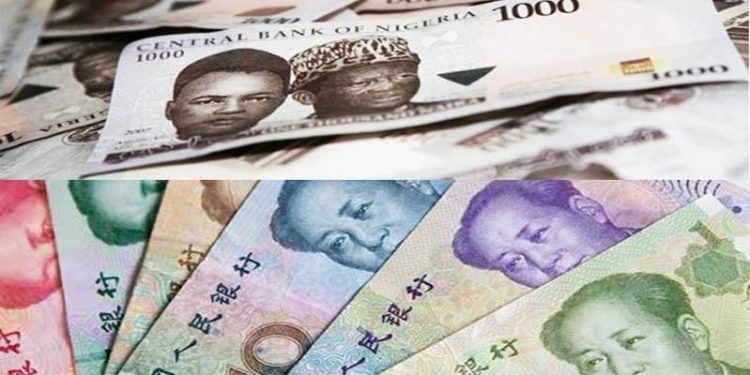Nigeria has renewed a $2 billion (15 billion yuan) currency swap agreement with China, aiming to bolster bilateral trade and reduce reliance on the U.S. dollar for transactions. The renewal, confirmed by the People’s Bank of China, extends the original 2018 deal, which was signed to address dollar shortages in Nigeria.
The agreement allows for naira liquidity for Chinese businesses and yuan liquidity for Nigerian businesses, facilitating smoother trade transactions between the two nations. It is expected to expand the use of the naira and yuan in trade, enhancing financial cooperation and reducing dollar demand in Nigeria’s economy.
China remains Nigeria’s largest trading partner, surpassing the United States. In 2023, trade between the two nations reached $22.6 billion, according to Vice President Kashim Shettima. Nigeria imported $11.2 billion worth of goods and services from China, while exporting $2.4 billion worth of goods, including crude oil and petroleum gas.
Shettima, during a November meeting with Zhang Qingwei, Vice Chairman of the Standing Committee of the Chinese National People’s Congress, highlighted that Nigeria-China trade is growing at an annual rate of 33%. Beyond trade, the relationship includes critical infrastructure projects and partnerships in renewable energy and smart city development, solidifying China’s position as Nigeria’s foremost development partner.
The renewed deal also comes as Nigeria grapples with forex scarcity, despite efforts by the Central Bank of Nigeria to allow the naira to trade more freely against the dollar. This currency swap is expected to ease cross-border transactions and support Nigeria’s economic recovery.
However, the agreement may influence Nigeria’s relations with other trading partners, particularly the United States. As President-elect Donald Trump prepares for inauguration in January 2025, his administration has signaled opposition to global moves that could diminish the dollar’s dominance, warning of potential trade tariffs on nations supporting alternative currencies.
The renewed swap deal underscores Nigeria’s strategic pivot toward diversified trade partnerships, positioning the naira and yuan as key instruments for cross-border commerce. It remains to be seen how this will impact broader international relations and the dynamics of global trade.










